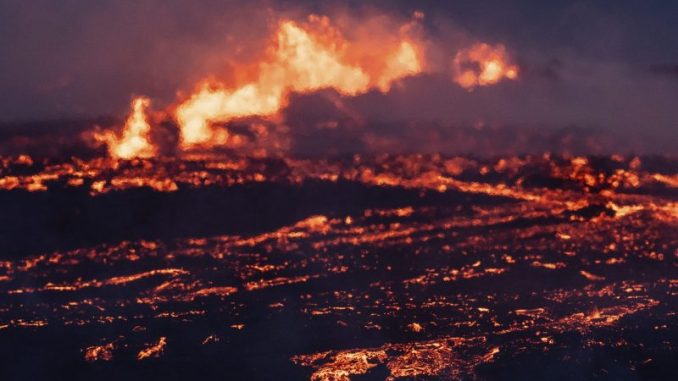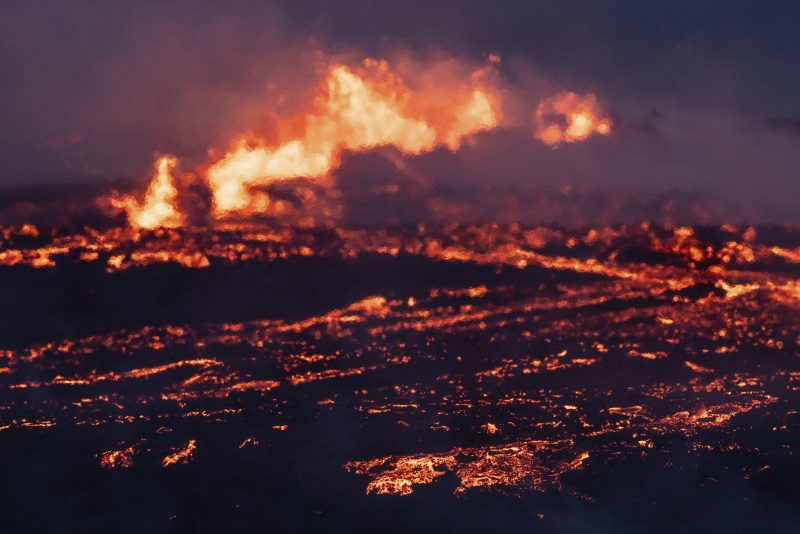

OAN Abril Elfi
4:38 PM – Tuesday, July 11, 2023
Icelandic authorities issued a warning to tourists and residents to avoid a recently erupted volcano that is spewing lava and toxic gasses from a crack in the southwest of the nation.
Advertisement
According to meteorological authorities, numerous earthquakes in the region preceded the eruption that started on Monday afternoon. Eleven months have passed since the last eruption. The eruption happened in an unpopulated valley close to the Litli-Hrtur mountain, about 19 miles southwest of the capital, Reykjavik.
“Gas pollution is high around the eruption and dangerous,” the Met Office said. “Travelers are advised not to enter the area until responders have had a chance to evaluate conditions.”
The eruption was apparently more explosive than the prior explosions, according to the Icelandic Meteorological Office. Aerial film revealed streams of orange molten lava and gas clouds erupting from a half-mile-long snaking crack.
The same region experienced an eruption in 2021 that resulted in stunning lava flows for several months. People from all over the world gathered to view the spectacle.
Every four to five years, Iceland, which is located above a volcanic hot zone in the North Atlantic, experiences an eruption.
The 2010 eruption of the Eyjafjallajokull volcano, which released massive ash clouds into the stratosphere and caused widespread aviation closures throughout Europe, was the most disruptive in recent memory. Due to worries that the ash could harm jet engines, more than 100,000 aircraft were canceled, stranding millions of foreign passengers and stopping air travel for days.
Geologists stated that the fissure and the size of Monday’s eruption had decreased by Tuesday morning. Due to the depleted size of the crevice, the Reykjavik airport remained open.
Stay informed! Receive breaking news blasts directly to your inbox for free. Subscribe here. https://www.oann.com/alerts
‘Gases’ has been changed to ‘Gasses’

Be the first to comment